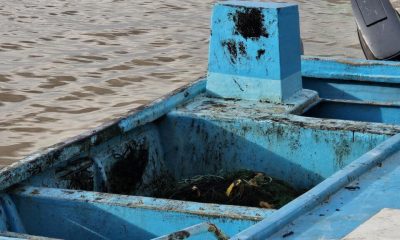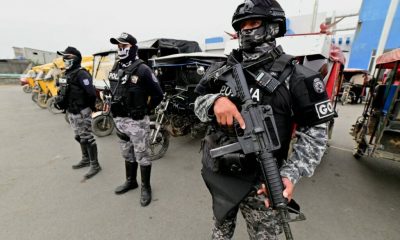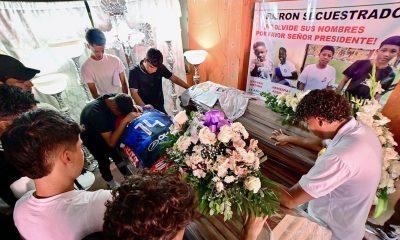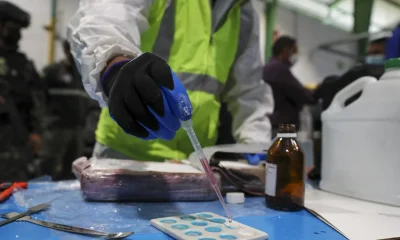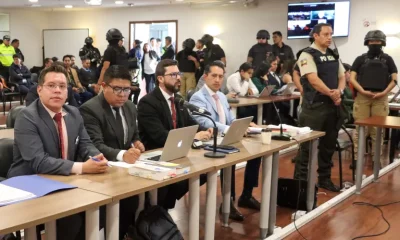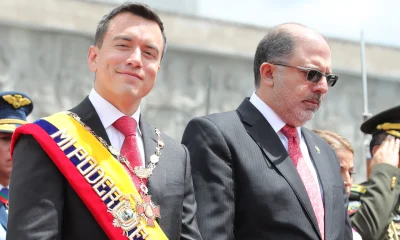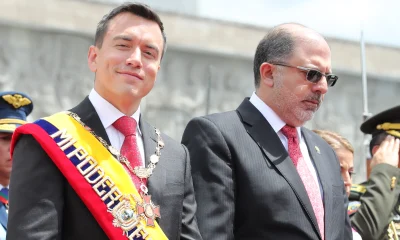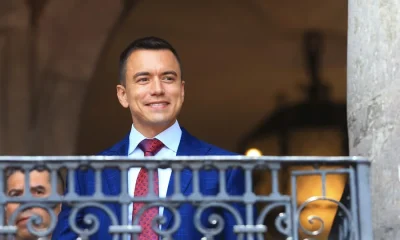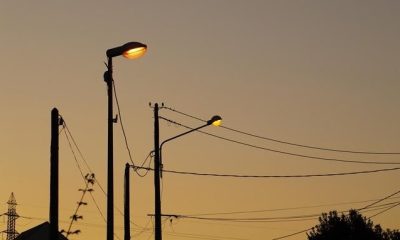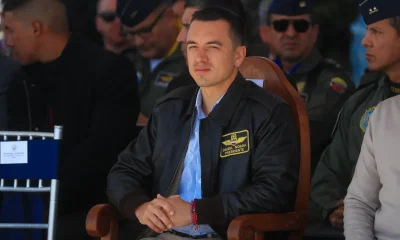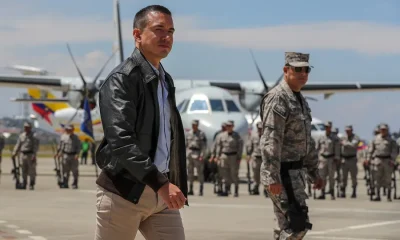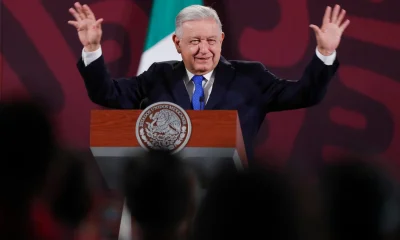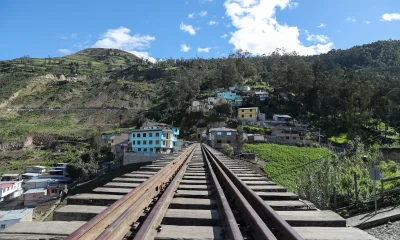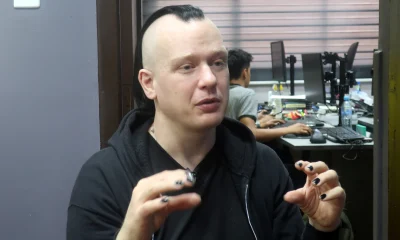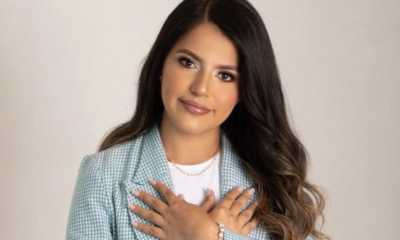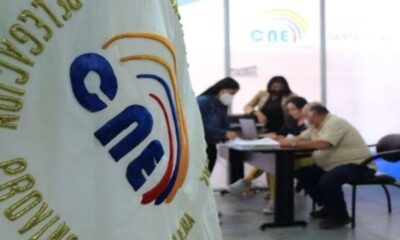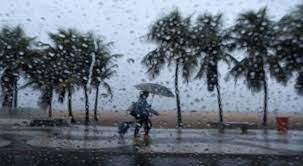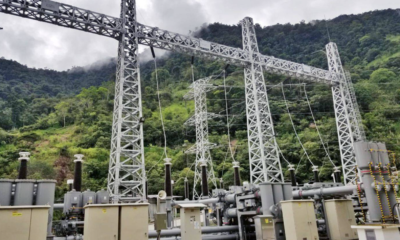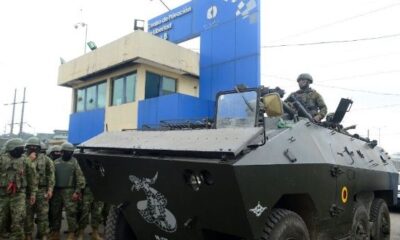International
60% of participation ninety minutes before the closing of the vote in Ecuador
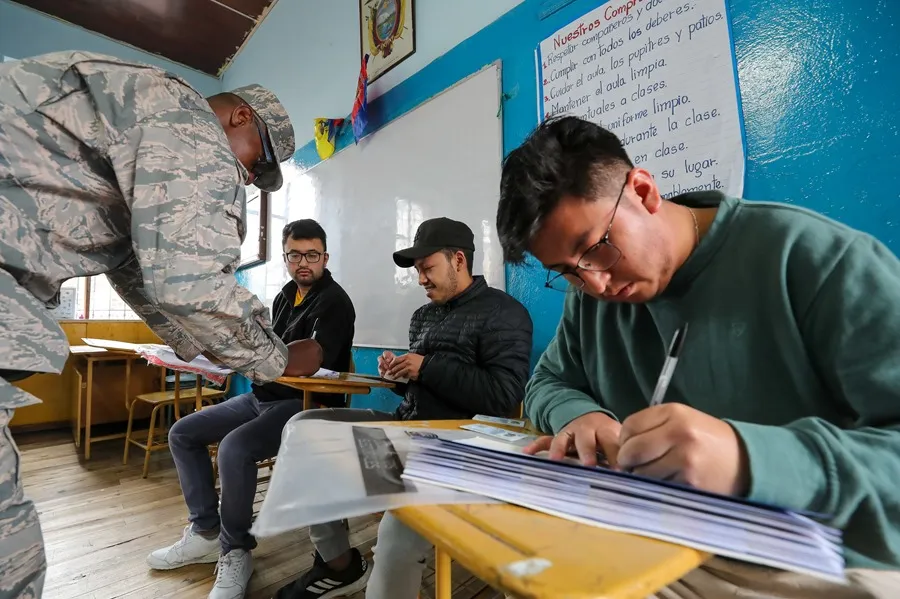
60% participation in the referendum was reported this Sunday by the National Electoral Council (CNE) ninety minutes before the polling stations were closed in Ecuador, where the day took place with “tranquility” until the murder of the director of a prison was recorded.
The percentage was confirmed by the president of the CNE, Diana Atamaint, in the second report on the electoral process to which more than 13.6 million Ecuadorians are summoned to answer eleven questions related to security, justice, investment and employment.
Atamaint publicly invited the population to come to vote because “the country needs them,” he said in a public appearance.
This vote will be a turning point for Noboa, who plays in it the high popularity achieved in the first months of his mandate by having elevated the fight against criminal gangs to the category of “internal armed conflict.”
During the opening ceremony of the day, Noboa remarked that this referendum “will mark the direction of the challenge to face organized crime, the fight against corruption and job creation.”
“Today is our time to make history, to mark a before and after,” said Noboa, for whom “this consultation collects several political flags.”
The referendum is held at one of the most delicate moments for Noboa in the nearly five months he has been in power, with an international diplomatic crisis due to the assault on the Mexican Embassy to arrest former Vice President Jorge Glas and with an internal energy crisis with blackouts of up to eight hours a day this week.
In case of winning the plebiscite, Noboa will be reinforced with a view to the new general elections that will take place in less than ten months and where the president evaluates running for re-election, but if he loses he can be weakened for the remainder of his mandate, until May 2025.
Criminal violence has also rebounded in the week of the referendum with the murder of two mayors in rural towns in whose territories there is the presence of illegal mining, an activity in which organized crime has also incursion, which has drug trafficking as its main business.
Among the eleven questions there are five that imply changes in the 2008 Constitution approved during the presidential term of Rafael Correa (2007-2017), while the remaining six must be processed through the National Assembly (Parliament), in case of receiving the support of the population.
Most propose legal tools to strengthen the fight against organized crime, which is attributed the wave of violence that has led the country to be among the first in Latin America in homicides, with about 45 per 100,000 inhabitants in 2023.
Therefore, he proposes that the Armed Forces support the Police in operations against organized crime on a permanent basis, and that the military be in charge of controlling access to prisons, the epicenter of this crisis having been dominated until a few years ago by criminal gangs, with large arsenals of weapons in their possession.
It also seeks to allow the extraditions of Ecuadorians required by the Justice of other countries and raise the penalties for crimes related to organized crime, as well as eliminate the prison benefits for several of these criminal figures.
To this is added the proposals to create a crime of possession and carrying of weapons for the exclusive use of the Police and the Armed Forces and that the weapons seized from crime immediately move on to equip police and military, in addition to expediting the process of expropriation of illegal property.
Other issues focus on establishing a system of constitutional courts, accepting international arbitrations in any jurisdiction and allowing hourly labor contracts.
In Ecuador, voting is mandatory for people between 18 and 65 years old, while it is optional for adolescents between 16 and 18 years old and also for those over 65 years of age, as well as for police, military and prisoners without a final sentence.
International
Thousands rally nationwide against Trump’s threat to U.S. democracy

Thousands of protesters gathered on Saturday (April 19, 2025) in major cities like New York and Washington, as well as in small communities across the United States, in a second wave of demonstrations against President Donald Trump. The crowds denounced what they view as growing threats to the country’s democratic ideals.
In New York City, demonstrators of all ages rallied in front of the Public Library near Trump Tower, holding signs accusing the president of undermining democratic institutions and judicial independence.
Many protesters also criticized Trump’s hardline immigration policies, including mass deportations and raids targeting undocumented migrants.
“Democracy is in grave danger,” said Kathy Valyi, 73, the daughter of Holocaust survivors. She told AFP that the stories her parents shared about Adolf Hitler’s rise to power in 1930s Germany “are happening here now.”
In Washington, demonstrators voiced concern over what they see as Trump’s disregard for long-standing constitutional norms, such as the right to due process.
International
ACLU seeks emergency court order to stop venezuelan deportations under Wartime Law

The American Civil Liberties Union (ACLU) on Friday asked two federal judges to block the U.S. government under President Donald Trump from deporting any Venezuelan nationals detained in North Texas under a rarely used 18th-century wartime law, arguing that immigration officials appear to be moving forward with deportations despite Supreme Court-imposed limitations.
The ACLU has already filed lawsuits to stop the deportation of two Venezuelan men held at the Bluebonnet Detention Center, challenging the application of the Alien Enemies Act of 1798. The organization is now seeking a broader court order that would prevent the deportation of any immigrant in the region under that law.
In an emergency filing early Friday, the ACLU warned that immigration authorities were accusing other Venezuelan detainees of being members of the Tren de Aragua, a transnational criminal gang. These accusations, the ACLU argues, are being used to justify deportations under the wartime statute.
The Alien Enemies Act has only been invoked three times in U.S. history — most notably during World War II to detain Japanese-American civilians in internment camps. The Trump administration has claimed the law allows them to swiftly remove individuals identified as gang members, regardless of their immigration status.
The ACLU, together with Democracy Forward, filed legal actions aiming to suspend all deportations carried out under the law. Although the U.S. Supreme Court recently allowed deportations to resume, it unanimously ruled that they could only proceed if detainees are given a chance to present their cases in court and are granted “a reasonable amount of time” to challenge their pending removal.
International
Dominican ‘False Hero’ Arrested for Faking Role in Nightclub Collapse That Killed 231

A man identified as Rafael Rosario Mota falsely claimed to have rescued 12 people from the collapse of the Jet Set nightclub in Santo Domingo—a tragedy that left 231 people dead—but he was never at the scene.
Intelligence agents in the Dominican Republic arrested the 32-year-old man for pretending to be a hero who saved lives during the catastrophic incident, authorities announced.
Rosario Mota had been charging for media interviews in which he falsely claimed to have pulled survivors from the rubble after the nightclub’s roof collapsed in the early hours of April 8, during a concert by merengue singer Rubby Pérez, who was among those killed.
“He was never at the scene of the tragedy,” the police stated. The arrest took place just after he finished another interview on a digital platform, where he repeated his fabricated story in exchange for money as part of a “media tour” filled with manipulated information and invented testimonies.
“False hero!” read a message shared on the police force’s Instagram account alongside a short video of the suspect, in which he apologized: “I did it because I was paid. I ask forgiveness from the public and the authorities.”
-

 Central America5 days ago
Central America5 days agoPetro questions Ecuador’s vote, cites reports of military control and arrests
-

 International4 days ago
International4 days agoArsenal stun Real Madrid at the Bernabéu to reach Champions League semifinals
-

 International3 days ago
International3 days agoDominican ‘False Hero’ Arrested for Faking Role in Nightclub Collapse That Killed 231
-

 Central America3 days ago
Central America3 days agoNicaraguan Exiles to Mark 7th Anniversary of 2018 Protests with Global Commemorations
-

 International4 days ago
International4 days agoBogotá residents line up for yellow fever vaccine amid national alert
-

 International2 days ago
International2 days agoACLU seeks emergency court order to stop venezuelan deportations under Wartime Law
-

 International4 days ago
International4 days agoDeSantis’ immigration crackdown sparks alarm in Venezuelan Communities in Doral
-

 Central America2 days ago
Central America2 days agoUN complaint filed against Costa Rica over detention of migrant children
-

 International4 days ago
International4 days agoMexico refuses to restore ties with Ecuador while Noboa remains in office
-

 International15 hours ago
International15 hours agoThousands rally nationwide against Trump’s threat to U.S. democracy
-

 International5 days ago
International5 days agoColombia: Search continues for missing limb of italian scientist found dismembered














